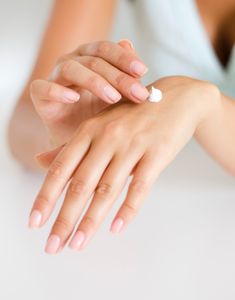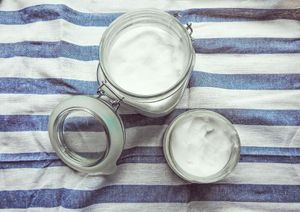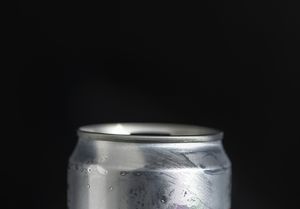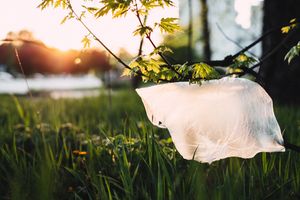Although about 16 million Americans suffer from depression, no one knows what exactly causes it, with theories ranging from high stress to a bad diet and exercise deficiency. However, recent studies linked depression to a wide array of environmental toxins. Nearly every day of our lives we are exposed to pollution – in our food, air, homes, work, etc. – and over time these toxins accumulate in our system. Try these 10 simple steps to keep your home – and the planet – free of toxins.
Some of these are easy fixes. Others challenge us to re-examine a lifetime of habits.
Say no to pesticides

“An apple a day keeps the doctor away.” While it is true that apples, along with other fruits, are very nutritional, many pesticides are lurking on the surface of grown, non-organic foods. However, eating 100% organic is not always realistic. It can be expensive, time-consuming, and inconvenient. Follow the Dirty Dozen and Clean Fifteen list to avoid consuming pesticides. If the crop falls under the Dirty Dozen, it was grown using lots of chemicals, and you should opt for organic whenever possible. If it falls under Clean Fifteen, it is less likely to have pesticide residues and is probably safe to eat.
Clean green

Conventional dish soaps, laundry detergents, dryer sheets, air fresheners, and household cleaners contain harmful for your health chemicals. Ingredients in common cleaning supplies have been linked to cancer, asthma, reproductive disorders, and hormone disruption. When possible, choose fragrance-free brands that are labeled nontoxic. The Environmental Working Group (EWG), one of the most respected nonprofit organizations, has built a great guide to nontoxic cleaners.
Be naturally beautiful

Remember, your skin is the largest organ in your body and since it is porous, it absorbs all the toxins that are in conventional shampoos, soaps, and makeup products. Instead of buying store lotions, try using almond, jojoba or coconut oil! The key to healthy beauty care is to understand what’s really underneath the lid; here is a fantastic guide from the EWG for non-toxic beauty products.
Ditch Teflon cookware
Generally speaking, Teflon is a safe and stable compound, but at a temperature above 570 F, Teflon coatings on nonstick cookware start to break down, releasing toxic chemicals. Also, once scratched Teflon pans begin an inevitable march toward complete exfoliation. That is, all the Teflon is going to end up in your food, and then inside your body. Instead of using Teflon, try stainless steel, cast iron or nontoxic ceramic.
Cook with healthy oils

The oils you use for coking all have a specific tolerance for heat, called a smoking point. For years we have been misled into thinking that canola oil was healthy. However, canola oil, along with other vegetable oils, is devastating for your health and the environment. Vegetable oil has a low smoking point and releases toxic chemicals when heated up. In contrast, heating up butter, olive oil and lard have a much higher smoking point. Coconut oil produces the lowest levels of harmful chemicals.
Ditch the cans

Many foods and beverages cans are lined with, or contain traceable levels of Bisphenol – A (BPA), a chemical that has been linked in past research to birth defects, heart disease, as well as breast cancer and other health concerns. Children and pregnant women are especially vulnerable to disrupting chemicals. To avoid the hazard, try buying fresh and frozen food when possible or buying cans labeled free from BPA.
Minimize plastic

Many chemicals of concern are found in plastic so it’s a good idea to reduce the amount of it in your home. The majority of plastic products contain vinyl, aka PVS, which has been linked to obesity, earlier puberty, enlarged male breasts, prostate, and other cancers. One way eliminate toxins is to look for a number 7 recycling symbol on the bottom of the item. If the packaging doesn’t have a leaf symbol on out, it may contain BPA.
Use plant power
Indoor plants provide a valuable weapon in the fight against the rising level of air pollution. They absorb potentially harmful gases and clean the air inside homes and office buildings. There is even a market for air purifying plants. Peace lily, bamboo palm, gerbera daisy, aloe vera – not only look beautiful but also filter out certain harmful compounds in the air and make it much healthier to breathe. Here is a full list of plans that will detoxify your home and make it cozier[7].
Switch to pure beeswax candles
Even innocent looking scented candles with their warm softy glow have their dirty secrets. Most candles are made of paraffin wax, which releases nasty chemicals when burned, such as benzene, toluene, and ketones, all of which can be found in diesel fuel fumes. To avoid the release of toxins, use beeswax candles. They give off the warm glow and pleasant odor without health hazard.
Leave your shoes at the doorstep
A study group from the Battelle Memorial Institute has found that lawn care chemicals can easily be tracked into the house and researchers from Baylor University showed that people who live near asphalt roads sealed with coal tar have an increased risk of cancer. The toxins are settled inside the house as dust particles, which are brought in on the shoes. Also, the rainwater on the pathway often contains gasoline, and your boots bring these chemicals into your bedroom. So, leave the shoes at your doorstep and throw on a pair of cozy wool socks instead.
Treatment
It is vitally important to eliminate your house from toxins as much as possible. Studies showed that environmental toxins may alter the brain in ways that set depression in motion. Although antidepressants are often the best solution to battle chronic depression, the American health system is notorious for antidepressant over prescription. Nowadays, unlike three decades ago, doctors prescribe these dangerous medications for non-depression diagnoses, such as anxiety, insomnia, and neuropathic pain. Many people unnecessary take antidepressants and due to the harsh withdrawal symptoms, quickly get addicted. If you have been struggling to quit antidepressants, consider Alternative to Meds Center (ATMC) – a licensed medication withdrawal and addiction treatment in Sedona, Arizona. ATMC doctors address the problem of antidepressant addiction with customized top-shelf programs for nutrition and detoxification but also with medication tapering, counseling, exercise and yoga, supplementation, organic diet, acupuncture, colonics, and a whole host of what is termed environmental medicine. To find more information about this alternative mental health programs, visit ATMC website.